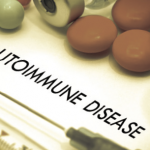According to EuroQol (EQ5D) questionnaire results, 62% of patients had difficulty with walking, 35% with self-care and 69% with their usual activities.
After being started on biologic therapy—abatacept, a TNF blocker, a non-TNFi biologic or a small molecule treatment—patients reported average decreases of 5 to 9 points in global assessment, fatigue and pain.
In terms of morning stiffness, more than 20% of patients experienced no change, about 20% had their stiffness get worse, and just 30% experienced reductions of 60 minutes or more in their morning stiffness after 12 months.
Fewer than half of patients showed any improvement in their EQ5D domain scores.
More than a third of patients had improvements in modified ACR20 scores at six and 12 months, Dr. Harrold said. Next, researchers plan to adjust for baseline characteristics and look at each therapy type separately, she said.
“Clearly there was reduced quality of life at the time of biologic initiation, and I think new treatment strategies are needed to try to impact that,” she said. “We thought that the improvement in patient-reported outcomes in this sample was modest. And we really need more information on patient-reported outcomes to help guide our conversations with patients on why we’re using these therapies and what the expected benefit will be.”
Fertility
Results from another study showed that more than 40% of women who have rheumatoid arthritis and are subfertile get a diagnosis of “unexplained subfertility” from their gynecologist. The findings in the national cohort study came from survey results and medical file reviews for 178 women who were pregnant or had tried to conceive, said Jenny Brouwer, MD, a fertility physician and PhD candidate in rheumatology and reproductive medicine at Erasmus Medical Center in Rotterdam, The Netherlands.
Subfertility is a big problem among women with RA, with about four out of 10 trying to get pregnant needing at least 12 months to do so or never getting pregnant at all. Active disease and anti-rheumatic treatment have been linked with subfertility.

Dr. Brouwer
In the study, researchers at Erasmus conducted a survey of 178 women with RA.3 They found that 46% had had at least one subfertile episode, and that 56% of these women were subfertile through their entire reproductive periods. Fifty percent of the women who were subfertile had conceived at least once with the help of fertility treatment, and those pregnancies accounted for just 17% of all pregnancies in the cohort.


